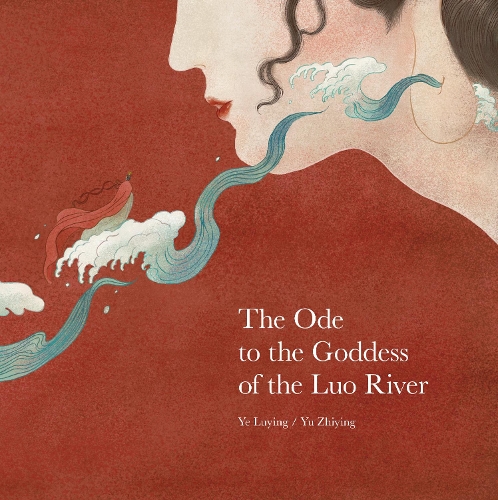
Ode to the Goddess of the Luo River, The
(Hardback)
Publishing Details
Ode to the Goddess of the Luo River, The
By (Author) Y Luying
Astra Publishing House
Minedition (imprint of Penguin Group (USA) Inc)
1st January 2020
United States
Classifications
Professional and Scholarly
Fiction
895.116
Physical Properties
Hardback
78
Width 290mm, Height 287mm, Spine 16mm
838g
Description
The Ode to the Goddess of the Luo River is an ancient Chinese poem created by Cao Zhi, a writer living in the state of Wei during the Three Kingdoms period (c. 220-280 CE). In his tale, Cao Zhi is returning from the capital to his own land when he stops at the Luo River for a rest, where he sees a vision of the goddess so powerful that he instantly falls in love with her. Cao sees a nymph of peerless beauty "as elegant as a startled swan and supple as a swimming dragon". Though he's swept away by her ethereal beauty, it's a love that isn't meant to be. With its high production values and amazingly-detailed-multi-page foldout spreads, this is a special book that will entice art lovers of all ages.
Reviews
"In this retelling of an ancient Chinese poem, a writer imagines the doomed love between the earthly and heavenly in this oversized picture book for older readers. Returning from a visit with the emperor, poet Cao Zhi passes by the River Luo. "As the ancient tale goes, underneath the river lives a beautiful goddess"so, as a writer, Cao decides to put forth his own story of a different goddess of the majestic river. Cao's goddess is ethereal: "she dazzles like the sun rising in the morningshe's as luminous as the lotus that grows in the shallows." Love is instant between poet and goddess, but with love comes hesitation and worry. Ultimately, the goddess concludes that "the world of humans and gods could never exist together." Readers unfamiliar with the poem will likely find the level of narrative detail insufficient, and consequently the melancholy ebbs rather than flows forth. Ye's illustrations, however, are lush in detail and lovely in strangeness. The illustrator injects traditional elements of Chinese paintings with a modern playfulness and whimsy. Big-eyed fish, fantastical creatures, and odd flora and fauna fill the pages. Elements of the natural world adorn the Goddess of Luo to evoke the otherworldly. Instead of being enrobed by traditional Chinese clothing, a flowing cape ending in a fish tail drapes over her body. Strands of pearls surround her and come to life as fairies. Four multipage gatefolds stunningly capture both the movement in the illustrations and the scale of the tale. Lavish illustrations elevate this adaptation of a classic." Kirkus Reviews
"Although a goddess and a mortal can fall in love, it is best to remember that the "world of humans and gods could never exist together." The story of the beautiful goddess of the Luo River is one of love and loss, based on a poem written by Cao Zhi, a Chinese writer who lived "in the state of Wei during the three Kingdoms period (approximately 220-280 CE)." The translation and adaptation from the Chinese is generally fluid but it is the illustration and format that distinguish this large volume, enhancing the drama and scope of the story. Several stunning illustrations are presented on extended gatefolds that open up to almost mural size. They evoke the river, present a sensuous river goddess and the mortal with whom she falls in love (including their ultimate separation), and dramatically depicts other gods and goddesses and other symbolic creatures from Chinese lore. Individual deities and figures are pictured with a brief explanation as well as a note on the history of the story and its illustrations to conclude this unique book. VERDICT Though not an essential purchase for libraries, this is sure to intrigue readers and may encourage further examination of traditional Chinese art and literature." Maria B. Salvadore, School Library Journal
Author Bio
Ye Luying, a graduate of The China Academy of Fine Arts, combines traditional Chinese painting styles with a contemporary graphic-novel sensibility to display the depth of traditional Chinese tales. Her rendition of this classic tale received much acclaim after its publication in China, winning the 13th Golden Dragon Award in 2016 for best illustration, as well as numerous other awards. Yu Zhiying is a professor, writer, and translator of children's literature. Her modern adaptation of this classic poem preserves the original's florid writing style and romantic motifs, which have been renowned for more than a thousand years.
